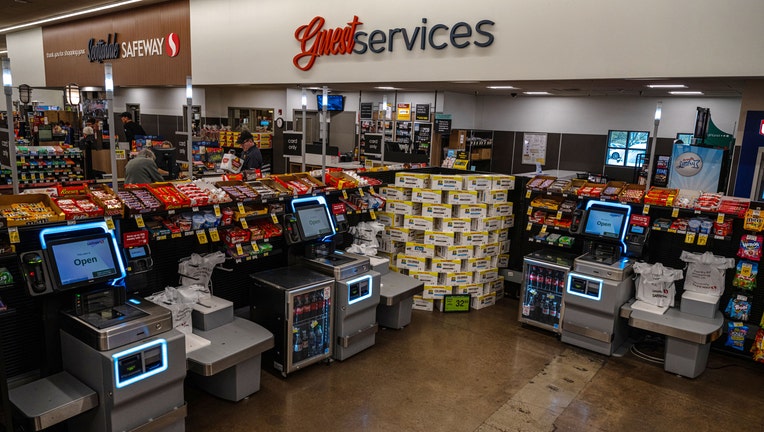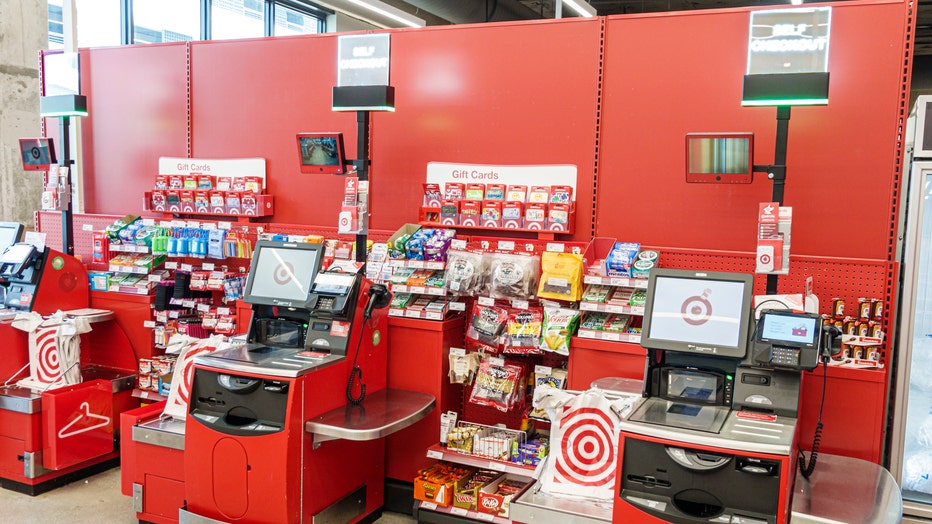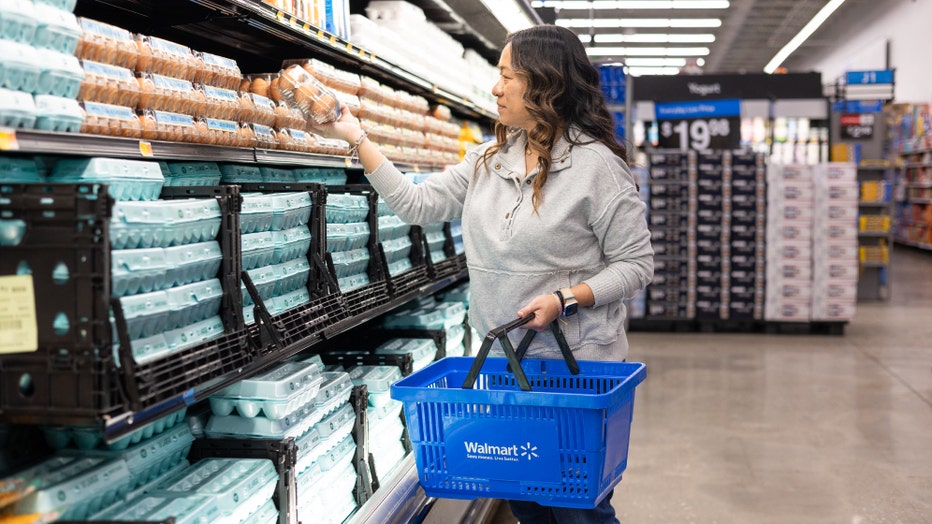Walmart, Target limiting self-checkouts in some stores. Will others follow suit?

Self check-out kiosks at an Albertsons Cos. brand Safeway grocery store in Scottsdale, Arizona, US, on Wednesday, Jan. 3, 2024. Photographer: Ash Ponders/Bloomberg via Getty Images
Some Walmart and Target stores are changing the way they operate self-checkouts, including limiting the scan-yourself registers to paid app subscribers and delivery drivers – depending on the time of day and how busy the store is.
Target says the company is closing some self-checkouts as one of "a number of tests" the company is trying, while Walmart says its strategy of opening self-checkouts based on staffing and customer demand is nothing new.
But both come as retailers nationwide continue to grapple with high levels of theft and organized crime. Experts say technology that relies on shoppers to do their own scanning and punch in product quantities tempts even law-abiding citizens to be dishonest. It's easy to just scan every other item or punch in codes for a cheaper item, and shoppers also make honest mistakes, leading to losses for stores.
Self-checkout, first tested in supermarkets in the late 1980s, gained momentum 20 years ago. But grocers ramped it up even more in 2020 to address severe labor shortages during the pandemic.
In 2021, self-checkout usage represented 30% of transactions, almost double from 2018, according to a survey of retailers by FMI, an industry group. And 96% of retailers surveyed offered self-checkout.
Self-checkout theft
Theft has been an issue as stores add more and more self-checkout lanes.
RELATED: Self-checkout is here to stay. But it's going through a reckoning amid holiday season
A year ago, grocery chain Wegmans, citing "losses," discontinued its self-checkout app that lets shoppers scan and bag items while they shop. However, it continues to offer self-checkout registers at its stores.
According to a recent survey from LendingTree, 15% of consumers say they have stolen items when using self-checkout machines. Another 44% say they would do it again.

Miami Beach, Florida, Target discount department store, self-service checkout stations registers. (Photo by: Jeffrey Greenberg/Universal Images Group via Getty Images)
Nearly half of all self-checkout users say they've witnessed other shoppers using them to steal and did nothing about it.
RELATED: Nearly half of shoppers who stole using self-checkout machine say they'd do it again: Survey
Some 69% of all shoppers say self-checkout machines make it easier to steal. Younger shoppers are also more likely to partake in thievery.
Roughly 31% of GenZ shoppers and 21% of millennials have taken an item without scanning it, the survey said.
Typically, stolen goods aren't anything with a hefty price tag. Overall, these stolen goods' self-reported value is roughly $60 on average.
Walmart self-checkout
This past fall, Walmart removed self-checkout kiosks in three stores in Albuquerque, New Mexico as part of a location by location approach, but on the whole it was adding more than it was taking away as of late 2023.

Walmart shopper (Walmart)
Asked about the status of self-checkouts and some stores limiting their use, Walmart sent FOX TV Stations the following statement:
"From time-to-time, our stores adjust the use of staffed checkouts and self-checkouts. For example, a store might start or end the day with staffed checkouts. As the number of shoppers and associate staffing increases, these stores open self-checkout registers to manage the increased customer flow. This process isn’t new.
"During these times of limited access, some stores are designating select self-checkout stations for Walmart+ customers using our Scan and Go service and Spark drivers for quicker access and delivery services. This decision is intended to better manage checkout availability."
Target self-checkout
Target did not say it’s closing or limiting self-checkouts, but when asked about their status and reports that self-checkouts have been closed or limited at some stores, Target released the following statement:
"In select stores we are piloting a number of tests to determine their impact on the overall guest experience. These tests vary by location."
Last year, Target began limiting the number of items to 10 that shoppers can scan in a handful of stores nationwide.
Kroger self-checkout
Kroger’s self-checkout is a little different, though other retailers are reportedly considering following suit: Kroger has deployed artificial intelligence technology at a majority of its 2,800 stores that triggers alerts when something is amiss.
For example, if a shopper fails to scan a particular item successfully, the system flags the error on the screen and prompts the customer to self-correct. If customers are unable to resolve the issue themselves, a light above the self-checkout blinks to attract workers' attention, but Kroger says customers are able to resolve the errors themselves over 75% of the time.
Amazon stores self-checkout
Amazon’s "just walkout technology " is in more than 70 Amazon-owned stores and more than 100 third-party retailers across the U.S., including airports.
It uses sophisticated cameras and allows shoppers to enter the store with a credit or debit card or by simply hovering their palm over an Amazon One palm payment device, and then walk out without having to stand in line to check out.
The Associated Press contributed to this report.

